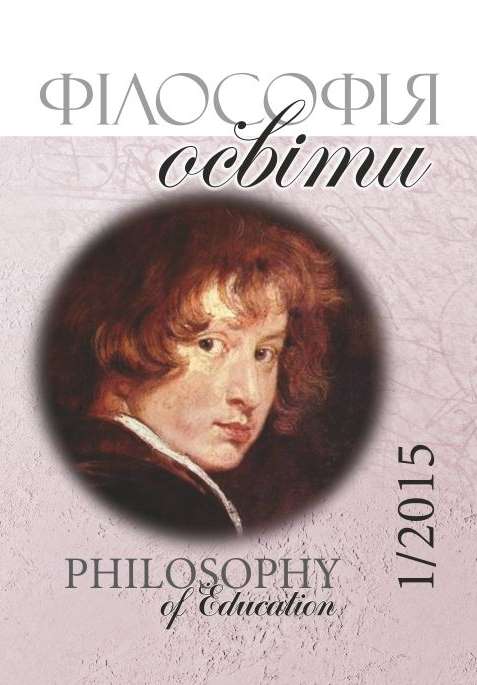Pedagogy in Light of Kant's Moral Anthropology
Abstract
Kant’s pedagogical doctrine in relation to his moral anthropology is revealed. The idea of close connection of Kant’s pedagogic with his understanding of human as a free individual who is prone to evil is analyzed. Kant characterizes evil as human’s fundamental feature, like radical evil, which emanated from human’s capacity to do something against moral principles of man’s nature. In his treatise “Religion Within the limits of Reason”, Kant with special strength focuses on man’s permanent internal struggle, which an individual must make with a liability to evil. To author’s mind an individual is like a “battlefield”, where kindness and cruelty are strangling for the opportunity to rule. In this context German philosopher pays attention to individual’s addiction to isolation, indisposition to speak, which is noticed in so-called “not communicative communication”, where a man is required to take much efforts in order to overcome loneliness. Therefore, an individual in spite of his or her taste to being alone is forced to contact with his or her relatives as far as he or she isn’t able to find the answers to all important questions alone. One of these core issues is a question of education. The peculiarities of Kant’s pedagogical theory formation are analyzed in this article. Particularly, this is done because there is a need to look at the education as the process that combines enforcement and freedom, a demand to keep in external rules of behavior, and a human right for free choice in this process that requires from a person the ability to rise at the level of moral, cultural being. It’s connected with the formation of individual’s ethical temper that uses not only disciplinary methods of influence, but also a progressive blossoming of mental interests in overcoming his or her problems, bad personaltraits, and defects. Kant underlines that one cannot imagine the development of ethical temper as a condition where a human gains a state of perfection, as far as this process demands lots of efforts from a person in order to become an ethical individual.
Downloads
-
PDF (Українська)
Downloads: 358
Published
How to Cite
Issue
Section
License
- Authors who publish with this journal agree to the following terms:
- Authors retain copyright and grant the journal right of first publication;
- Authors are able to enter into separate, additional contractual arrangements for the non-exclusive distribution of the journal's published version of the work (e.g., post it to an institutional repository or publish it in a book), with an acknowledgement of its initial publication in this journal.





